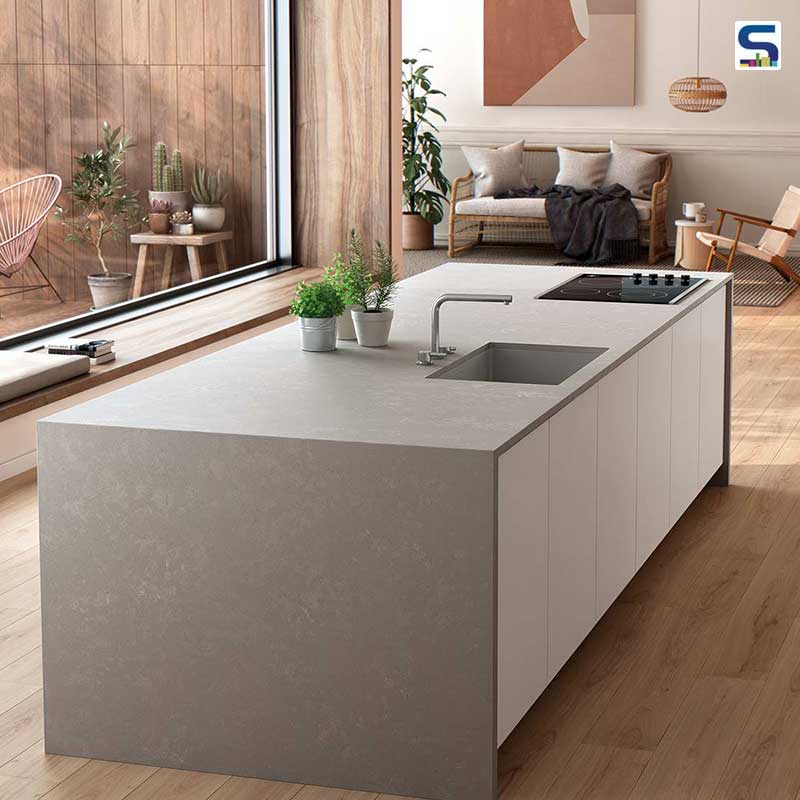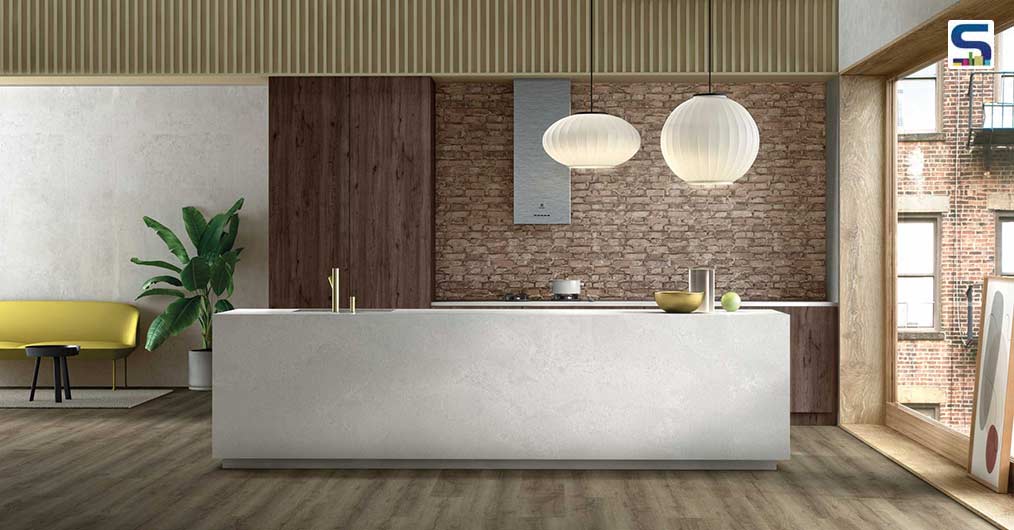
Offering a plethora colour designs for bathrooms and kitchens, Spanish surfaces specialist Cosentino has upgraded its Silestone offerings. Based in Almeria, Spain, Cosentino is known for manufacturing sustainable surfaces. And now with the aim to embrace the circular economy, the company has introduced HybriQ and HybriQ+ technologies for its Silestone range.
Silestone comprises 90 per cent quartz, thereby making it hard-wearing despite its seamless surface. The solid surface is scratch resistant, shock resistant and imporous. Its robust qualities make it an ideal choice for kitchen and bathroom applications. The upgraded Silestone surfaces contain less crystalline silica, with a maximum 10 or up to 50 per cent of crystalline silica, mainly depending on the colour.

Keeping up with its sustainable method, the HybriQ is a mix of minerals, quartz and recycled materials and is made using 100 per cent renewable electrical energy and 99 per cent recycled water. Wasted water generated during the process is then reused for manufacturing more such solid surfaces. The HybriQ+ variant is highly sustainable as it contains minimum 20 per cent recycled materials such broken glass bottles or windows.
The collection is available in different hues and is inspired by the natural habitat of Spain. To evoke a sense of timeless elegance, earthy, subtle colours form the colour palette of the collection. Terracotta-coloured Arcilla Red draws its name from clay soil found in Almeria, while Cala Blue evokes the vastness of the blue sea. Faro White is an amalgamation of the sun-drenched buildings seen through Spain. Cincel Grey combines the shades of grey to match warm and cool tones. Posidonia Green collection draws inspiration from Spain’s Posidonia underwater seagrass meadows, which are now shrinking due to climate change.
Image courtesy: Cosentino